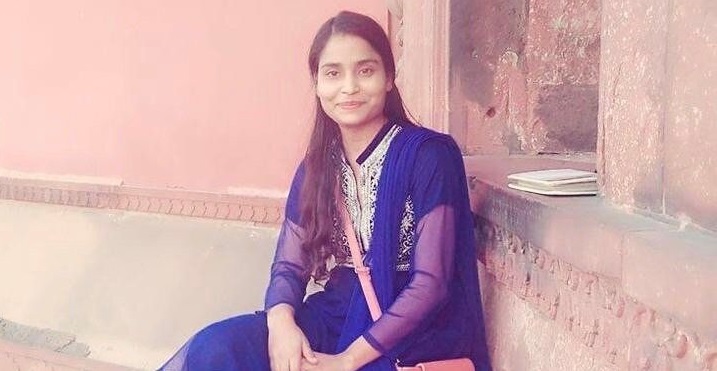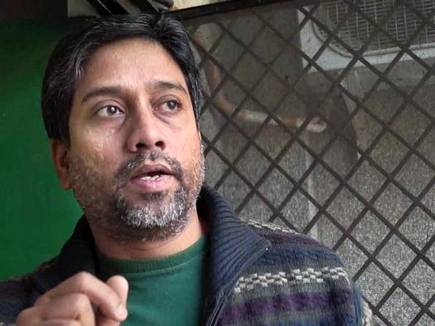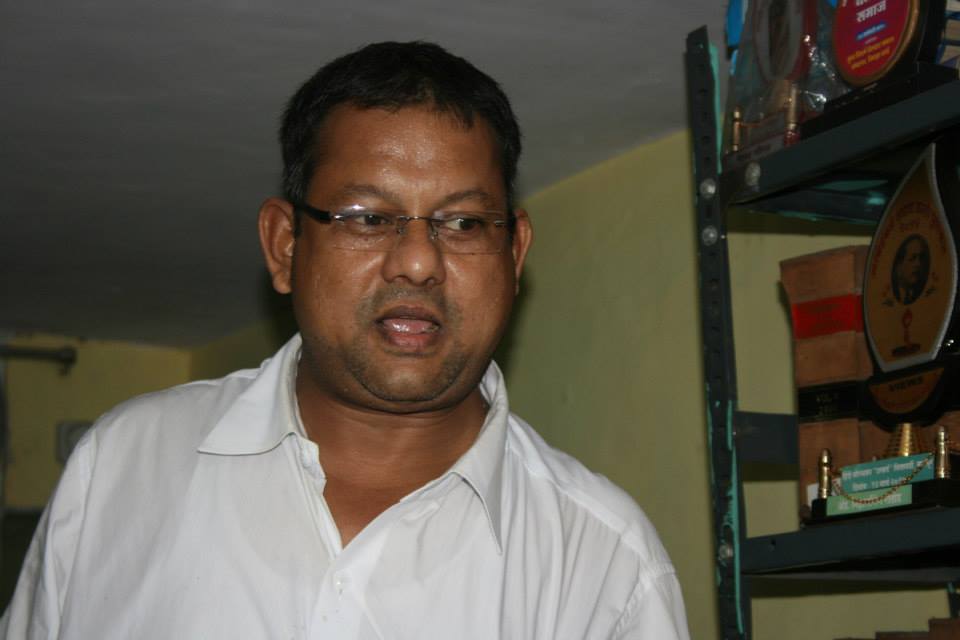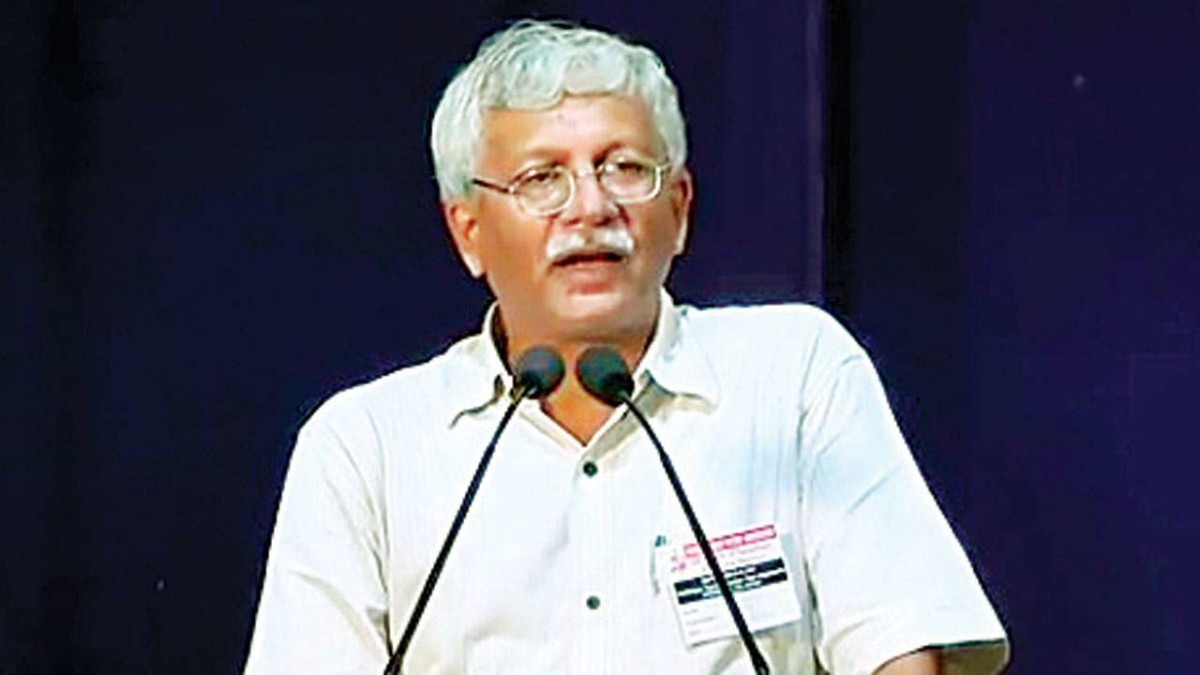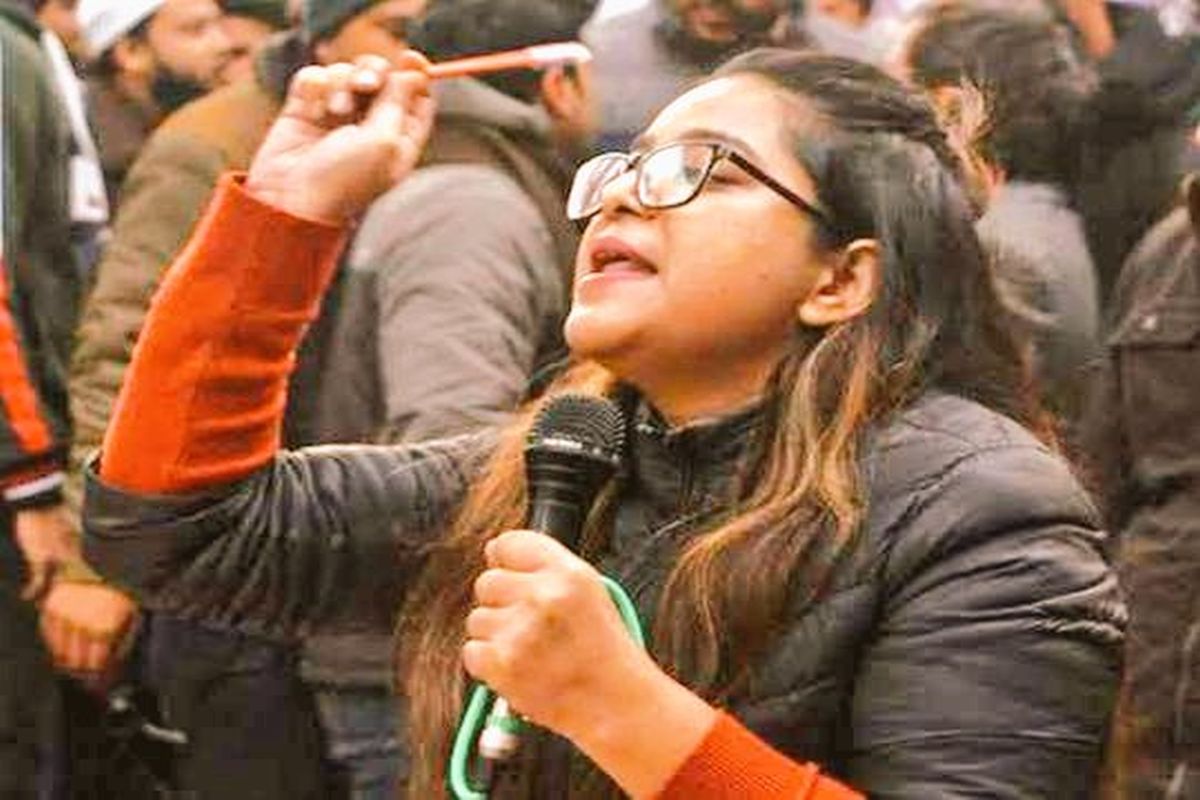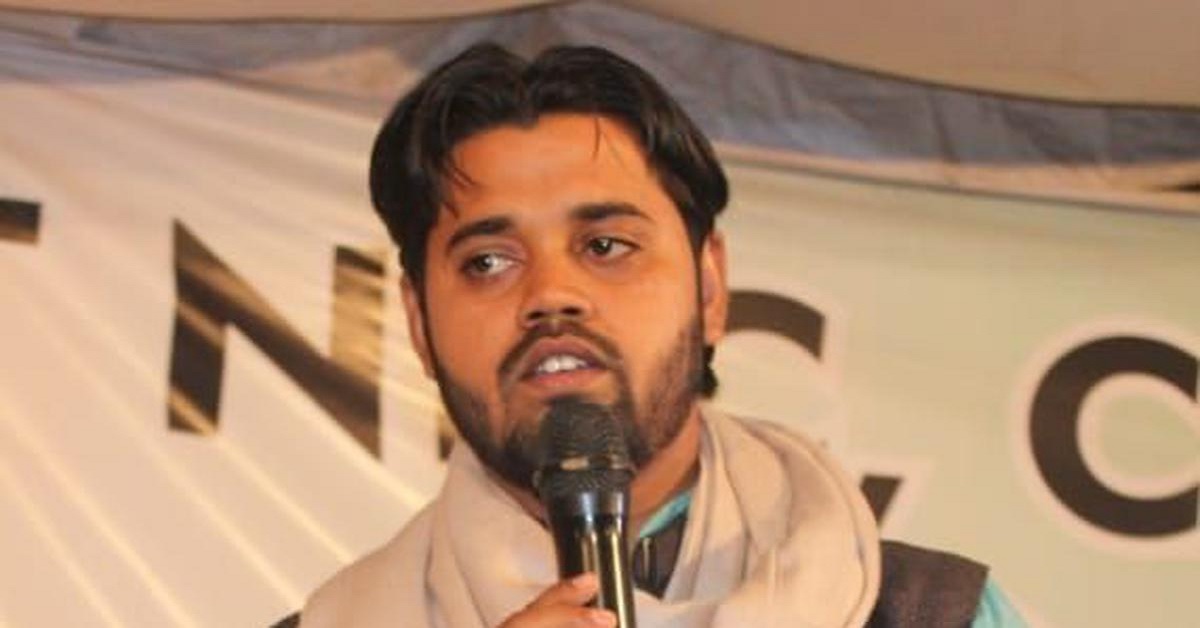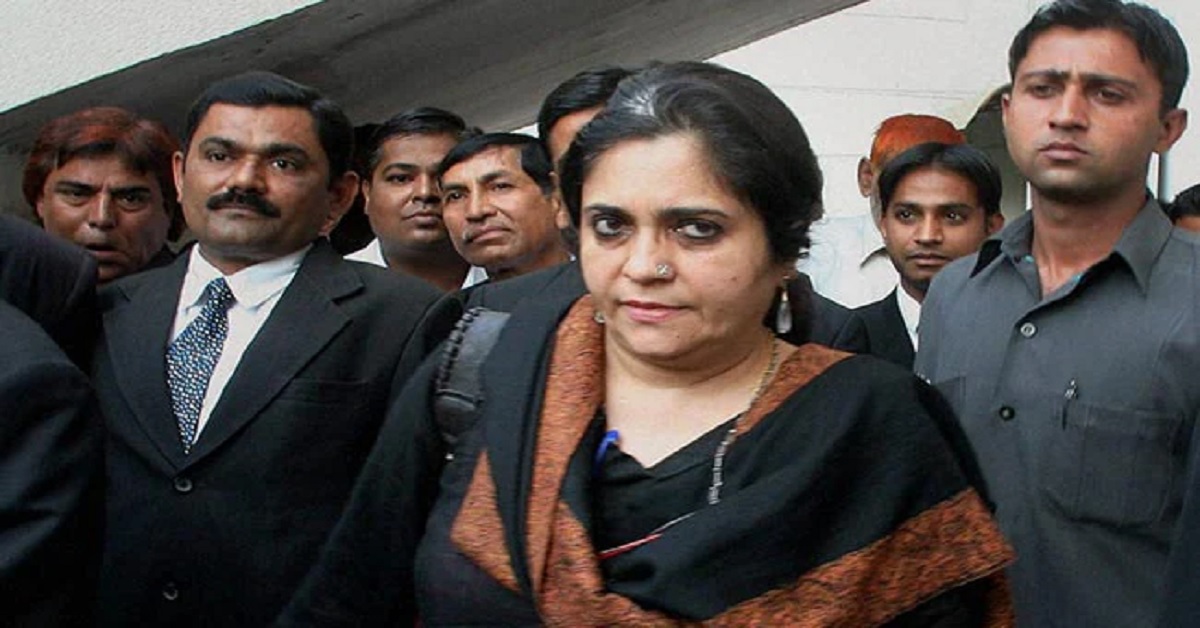Citizens for Justice and Peace

GULSHIFA FATIMA
A student activist, Gulshifa Fatima was jailed for allegedly inciting violence during the February 2020 Delhi violence. She remains behind bars at Tihar jail. After she alleged harassment by jail authorities, a Delhi court directed jail authorities to change the staff if necessary.
Charges
Sections 147 (rioting), 186 (obstructing a public servant from doing his duty), 188 (disobedience to order), 353 (assault or criminal force to deter public servant), 283 (danger or obstruction in a public way), 109 (abetment) and 34 (acts done by several persons in furtherance of common intention) of the Indian Penal Code, UAPA
HANY BABU
Professor Hany Babu of Delhi University is another intellectual who has been targetted merely for being an intellectual with a strong voice of dissent. He has been implicated in the Bhima Koregaon conspiracy case.
Charges
Sections 153(A) (promoting enmity), 505(1)(B)(statements conducing to public mischief), 115 (Abetment of offence punishable with death or imprisonment for life—if offence not committed), 120(B) (criminal conspiracy), 121 (waging war against Government of India), 121(A) (Conspiracy to commit offences punishable under Section 121), 124(A) (sedition), 201 (disappearance of evidence) and 34 (common intention) of the Indian Penal Code (IPC) and Sections 13 (advocating, abetting or inciting unlawful activity), 16 (terrorist acts), 17 (punishment for raising funds for terrorist act), 18 (conspiracy), 18(A)(punishment for organising of terrorist camps), 18(B)( Punishment for recruiting of any person or persons for terrorist act), 20 (being member of terrorist gang or organisation), 38 (membership of a terrorist organisation), 39 (supporting terrorist organisation) and 40 (fundraising for terrorist organisation) of the UAPA Act.
SURENDRA GADLING
Advocate Surendra Gadling is a human rights lawyer, best known for defending Prof. GN Saibaba and activist Arun Fereira. He is the president of Indian Association of People's Lawyers (IAPL) and has been at the forefront of the quest for justice for Dalits, tribals and other marginalised people. Hailing from a Dalit community himself, Adv. Gadling played a crucial role in the pursuit of justice in the aftermath of Khairlanji massacres, Ramabai Nagar agitations, cases pertaining to fake encounters etc.
Charges
Sec. 153A (promoting enmity between different groups on grounds of religion, race, place of birth, residence, language, etc., and doing acts prejudicial to maintenance of harmony), Sec. 505(1)(B) (public mischief), Sec. 121 (waging, or attempting to wage war, or abetting waging of war, against the Government of India), Sec. 121A IPC (conspiracy to commit offences, waging war against the state), Sec. 124A (sedition) of the IPC, and several sections under UAPA.
UMAR KHALID
Student leader and co-founder of United Against Hate, Umar Khalid is a courageous and outspoken defender of constitutional values. Constantly the target of the BJP government, Right-Wing trolls, rabid TV anchors and survivor of an assassination attempt, nothing has managed to subdue his voice.
Charges
Sections 186 (Obstruction of public servant from discharging duty), 153A (Wantonly giving provocation with intent to cause a riot), 427 (Causing damage by mischief), 120B (Criminal conspiracy), 302 (Murder), 353 (Assaulting public servant), 435 (Mischief by fire or explosive substance), 124A (Sedition), 307 (Attempt to Murder), 395 (Dacoity) and Sections 13, 16, 17 and 18 of UAPA
ARUN FERREIRA
Arun Ferreira, a courageous human rights defender, started his journey when he organised canteen workers, while he was at college, to demand better working conditions. He was instrumental in relocating slum-dwellers from Colaba to Goregaon (both in Mumbai). Targetting him for his social work, he has repeatedly been Behind Bars under fraudulent charges and has suffered torture while in jail. He compiled his experiences in his book Colours of the Cage.
Charges
Sections 121 (waging, or attempting to wage war, or abetting waging of war, against the Government of India), 121A (conspiracy to commit offences punishable by section 121), 124A (sedition), 153A (promoting enmity between different groups on grounds of religion, etc., and doing acts prejudicial to maintenance of harmony), 505(1)(b) (statements conducing to public mischief), 117 (abetting commission of offence by the public or by more than ten persons) and 120B (criminal conspiracy), read with 34 (common intention) of the Indian Penal Code (IPC), and under Sections 13 (punishment for unlawful activities), 16 (punishment for terrorist act), 17 (punishment for raising funds for terrorist act), 18 (punishment for conspiracy etc.), 18B (punishment for recruiting of any person or persons for terrorist act), 20 (punishment for being member of terrorist gang or organisation), 38 (offence relating to membership of a terrorist organisation), 39 (offence relating to support given to a terrorist organisation) and 40 (offence of raising fund for a terrorist organisation) of the Unlawful Activities (Prevention) Act, 1967 (UAPA).
VERNON GONSALVES
Vernon Gonsalves is a trade unionist, activist, scholar, and author who has written extensively about the rights of Dalits and Adivasis, the state of Indian jails, and the everyday violations of prisoners' rights. He was a former professor of business management in a college in Mumbai. Gonsalves routinely critiques the establishment in his writing on current law and order concerns, together with Arun Ferreira. He also writes extensively the need to repeal UAPA. He was among the human rights activists arrested in connection with the January 2018 Bhima Koregaon violence. Gonsalves was previously arrested under the UAPA in 2007 and imprisoned for six years before being freed on all counts with the exception of one case that is currently pending. On August 19, 2007, the Maharashtra Anti-Terror Squad detained Gonsalves from his apartment in Mumbai. They claimed that he was a "top-level" Naxalite, in possession of explosives, a previous member of the Maoist central committee, and the former secretary of the Maharashtra State Rajya Committee. Under the UAPA, he was accused in 20 cases. Gonsalves was freed from jail on June 27, 2013. He was exonerated in 17 of the cases brought against him, convicted in one case while one was dismissed.
Charges
Sections 121 (waging, or attempting to wage war, or abetting waging of war, against the Government of India), 121A (conspiracy to commit offences punishable by section 121), 124A (sedition), 153A (promoting enmity between different groups on grounds of religion, race, place of birth, residence, language, etc., and doing acts prejudicial to maintenance of harmony), 505(1)(b) (statements conducing to public mischief), 117 (abetting commission of offence by the public or by more than ten persons) and 120B (punishment of criminal conspiracy), read with 34 (acts done by several persons in furtherance of common intention), of the IPC, and under Sections 13 (punishment for unlawful activities), 16 (punishment for terrorist act), 17 (punishment for raising funds for terrorist act), 18 (punishment for conspiracy etc.), 18B (punishment for recruiting of any person or persons for terrorist act), 20 (punishment for being member of terrorist gang or organisation), 38 (offence relating to membership of a terrorist organisation), 39 (offence relating to support given to a terrorist organisation) and 40 (offence of raising fund for a terrorist organisation) of the UAPA.
SAFOORA ZARGAR
Safoora Zargar is an activist who was incarcerated for participating in anti-CAA protests, this, in spite of being 3 months pregnant at that time. Deeply misogynistic rumours and posts were spread on social media by right-wing trolls in a bid to defame her. In August 2022, Safoora alleged that the Jamia Millia Islamia University was cancelling her admission by not extending the time allotted to her for submitting her thesis. Alleging discrimination, she also claimed that the university administration had used derogatory words to turn her away and called her a ‘dangai’ (rioter). This comes after the UGC May 2022 guideline permitting universities and higher education institutions to give an extension of up to six months beyond 30 June for M.Phil or Ph.D. thesis submissions on a case-by-case basis after reviewing a student’s work.
Charges
Initially booked under Sections of UAPA, Arms Act, and plethora of IPC Sections. The Delhi High court has only charged her under Sections 143 (unlawful assembly), 147(rioting),149 (member of unlawful assembly guilty of offence committed in prosecution of common object), 186 (obstructing public servant from carrying out his duties), 353 (assault or criminal force to deter public servant from discharge of his duty), 427 (mischief causing damage) of the Indian Penal Code (IPC) and Section 3 of Prevention of Damage to Public Property Act, 1984 (PDPP Act). Notably, the HC said that the accused will not be charged under other sections of law mentioned in the chargesheet since there is not enough material to implicate them under those sections of law.
Asif Tanha
Asif Iqbal Tanha is a 24-year-old student from Hazaribagh in Jharkhand, who is studying for a BA in Persian Studies at Jamia Milia Islamia. He joined the Students Islamic Organization of India (SIO) – the student’s wing of Jamaat-e-Islami Hind, at the age of 15. Tanha has also been instrumental in organizing protests and mobilising students against the anti-Muslim measures of the Bharatiya Janata Party (BJP). Tanha fought against injustice in the campus and actively participated in protests for the restoration of the Students Union and the right to association, which was suspended in 2006. He was also involved in the protest movement against the CAA-NRC right from the beginning and was an important decision-maker in the Jamia Coordination Committee (JCC).
Charges
Initially booked under Sections of UAPA, Arms Act, and plethora of IPC Sections. Significantly, the Delhi High court has only charged him under Sections 143 (unlawful assembly) of the Indian Penal Code (IPC), noting that the accused will not be charged under other sections of law mentioned in the chargesheet since there is not enough material to implicate him under those sections of law.
TEESTA SETALVAD
The journalist, activist and educationist is also the secretary of Citizens for Justice and Peace (CJP). As a journalist Setalvad has written for multiple publications since 1983. Her coverage of the communal violence in Mumbai in 1992-93 set the tone for much of her work as an activist. In 1993, she co-founded the magazine Communalism Combat with her husband and fellow human rights defender Javed Anand. CJP was founded in 2002 in wake of the communal violence that broke out in Gujarat. CJP, through Teesta Setalvad was the second petitioner in the Zakia Jafri case that sought to pin accountability for failure to control the violence on authorities in the state at the time. Setalvad was detained from her Mumbai home by a unit of the Gujarat ATS on June 25, just a day after the Supreme Court dismissed the petition in the Zakia Jafri case. She was taken to Ahmedabad where she was remanded to police custody by a magistrate. After a long legal battle, Setalvad was finally granted interim bail by the Supreme Court, and released from Ahmedabad's Sabarmati Jail.
Charges
194 (Giving or fabricating false evidence with intent to procure conviction of capital offence), 211 (False charge of offence made with intent to injure), 218 (Public servant framing incorrect record or writing with intent to save person from punishment or property from forfeiture), 468 (Forgery for purpose of cheating), 471 (Using as genuine a forged document or electronic record) read with 120 B (Criminal Conspiracy)

